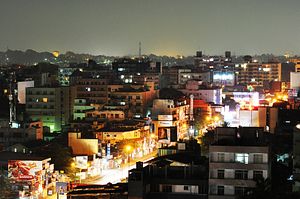According to a group of Tamil human rights activists, Sri Lanka’s incipient transitional justice process is deeply flawed. Several organizations recently delivered a letter to UN Secretary-General Ban Ki-Moon – who just visited the war-torn island nation.
The detailed letter raises many pertinent issues: problems with public consultations to design the country’s transitional justice mechanisms; the pernicious effects of militarization in the northern and eastern provinces; a fundamental lack of political will from the coalition government. Here’s part of the letter:
At the core of our concerns is what we believe is a lack of will on the part of the government to initiate any meaningful process for transitional justice. From the beginning we have articulated the need for the government to put forward a coherent policy on transitional justice that lays out the inter-linkages between the different mechanisms. The government has in various statements by the President [Maithripala Sirisena] and Prime Minister [Ranil Wickremesinghe] indicated that it will not initiate any criminal prosecutions that target the Sri Lankan armed forces. As a result, we are skeptical that the delay in the government releasing a coherent policy is merely part of the sequencing the transitional justice mechanisms. We are afraid that the strategy is to undermine the need for tackling impunity [for wartime abuses] through criminal prosecutions. The government and certain civil society actors have also been suggesting that the constitutional process currently underway should not be disrupted by demands for criminal prosecutions. This only repeats the discredited dichotomy of ‘peace versus justice.’ In fact, we believe that the government could demonstrate its commitment to transitional justice by incorporating a chapter or clauses that make reference to the same into the new constitution. Overall we are concerned that for the government transitional justice is just a tool for managing foreign policy goals.
In a hard-hitting piece, Colombo-based columnist Kishali Pinto-Jayawardene has also criticized Sri Lanka’s transitional justice process. Here’s part of her recent article:
There is a vexed interplay between finding the ‘truth’ and securing ‘justice.’ This is what the convenient ‘pigeon-holing’ of separate ‘solutions’ (without the affected communities being informed of the connections between each element) into inter alia, an [Office of Missing Persons] OMP, another of Sri Lanka’s interminable Truth and Reconciliation Commissions and a Special Court ignores. And the refusal to address the issue of flawed justice institutions and pervasive systemic impunity further bedevils the legitimacy of Sri Lanka’s transitional justice package.
There’s more:
Adding to the confusion is the sudden springing up of ‘transitional justice experts’, (more or less like instant noodles), half of whose experience in academia or the solid practice of the law in the national courts can be summed up on the back of the proverbial envelope while the other half is conspicuously distinguished by their lack of a popular support base either in the North or the South. Thus, a distastefully elitist mentality predominates which treats the very idea of ‘peoples’ participation’ with disdain preferring instead to maintain a façade of handpicked and targeted ‘consultations’ with carefully ‘packed’ questions that have the suggested ‘correct’ answers on what ‘the victims want.’
As the calls for more decisive action become ever more strident, will Colombo finally get serious about healing the wounds of war?
* This piece first appeared in The Huffington Post.































